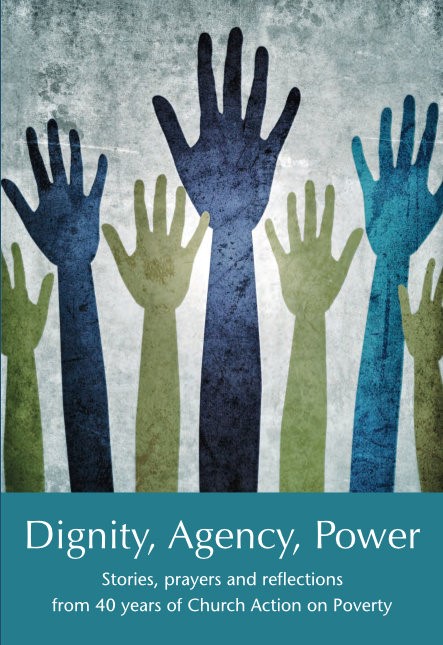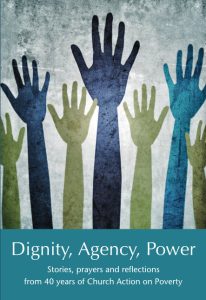Dignity, Agency, Power and human worth
A reflection on Isaiah 1:12-20 by Hazel Palmer

What does the Bible have to say about the value of people – especially when they’re in poverty? Those who are poor and vulnerable are routinely dismissed by our media and politicians as worthless. So how does the Bible speak into a world like this?
Isaiah’s words show us. In his time, obviously our economic and benefit systems didn’t exist. But we can learn from what he says because God’s nature is still the same. And so, sadly, is ours. And one of the results is the gap between rich and poor.
These verses start by describing how the people in Judah and Jerusalem were keeping the religious services, following the prescribed pattern. They felt they were offering God what he was worth. It seemed fine to them, so it must have been fine with him, right?
Wrong. The Lord’s verdict shocked them. To him, their worship was meaningless and detestable – the word evil is even used. We, too, may be shocked by God’s response, but let’s remember it was not a final condemnation. He was only taking them to task so they would change things for the better.
You could assume the problem with their worship was insincerity, but the passage doesn’t point to this. In Isaiah for Everyone, John Goldingay, an Old Testament commentator, says the believers looked “as if they meant every hallelujah”. So what was it that God objected to so much?
It was their behaviour outside the services. They had not righted a great wrong (verse 15) and therefore had blood on their hands. The blood of the poor.
The Message version of the Bible expresses God’s anger like this (verse 17):
“Meetings for this, meetings for that. I hate them! You’ve worn me out! I’m sick of your religion, religion, religion, while you go right on sinning.”
We’re told the problem was about justice (verse 17). John Goldingay defines this Old Testament word as authorities (governments) “taking decisions … on behalf of people in need and of people wronged by others.” At the time, people in power had thrown many poor widows off land they were entitled to. Instead, they awarded it to others who “joined field to field” (5:8): enlarging their property by snatching what belonged to the poor. They treated widows and their children as if they were worthless; in effect, starving them.
God calls this by its name: oppression (1:17).
So rich people were robbing the poor and vulnerable, while those who weren’t affected did nothing. Sound familiar? God’s worshippers needed to see that justice was done.
Note that charity was not in the picture.
Elsewhere in the Bible – for example, Deuteronomy 15:7,8 and 2 Corinthians 9:6-15 – God commands charitable giving. But not in Isaiah 1. That’s because what was needed was to solve the problem at root: the authorities’ decisions going against the poor. In our day, food banks are sadly necessary and everyone is grateful to staff and donors. But do they put right the basic issue?
No – charity only deals with the effects of injustice. It’s also often piecemeal and can be reduced or withdrawn. Instead, vulnerable people need a reliable system with justice and dignity.
This passage seems like bad news for Christian worshippers. It says if we aren’t calling for justice for poor people, we can recite the prayer book till we’re hoarse; God doesn’t listen. And if we don’t work to stop oppression, we can sing praise till the roof comes off. Even though we mean it, it’s unacceptable to God.
Thankfully, God is gracious: he shows us undeserved favour. Isaiah told the people of Jerusalem to, “learn to do right” (verse 17). If they did, God would forgive their collective failure to love those in need (verse 18): “…though your sins are like scarlet, they shall be as white as snow…” Scarlet dye was otherwise permanent.
And they didn’t need to fear being in want. Perhaps they were afraid of precisely this. If believers pursued justice for the poor, they were reassured that, “…you will eat the best from the land” (verse 19b). Everyone would prosper together.
This means a letter to your MP about UK hungry children or a decision to join an anti-poverty campaign could be a spiritual game-changer.
So to answer our original question: what are human beings in poverty worth? The answer is that their importance could hardly be greater. God himself stands alongside the poor who suffer oppression. If we insult them by denying them justice, it amounts to insulting God by offering him worship he can’t accept.
That’s how much a person in poverty is worth.
(Bible quotations are from the New International Version, unless stated otherwise.)
 You can find more prayers and reflections by Hazel and over 40 other authors in the anthology Dignity, Agency, Power, published by Wild Goose Publications to mark 40 years of Church Action on Poverty.
You can find more prayers and reflections by Hazel and over 40 other authors in the anthology Dignity, Agency, Power, published by Wild Goose Publications to mark 40 years of Church Action on Poverty.

Be part of a movement that’s reclaiming dignity, agency and power

Comments (02)
Comments are closed.